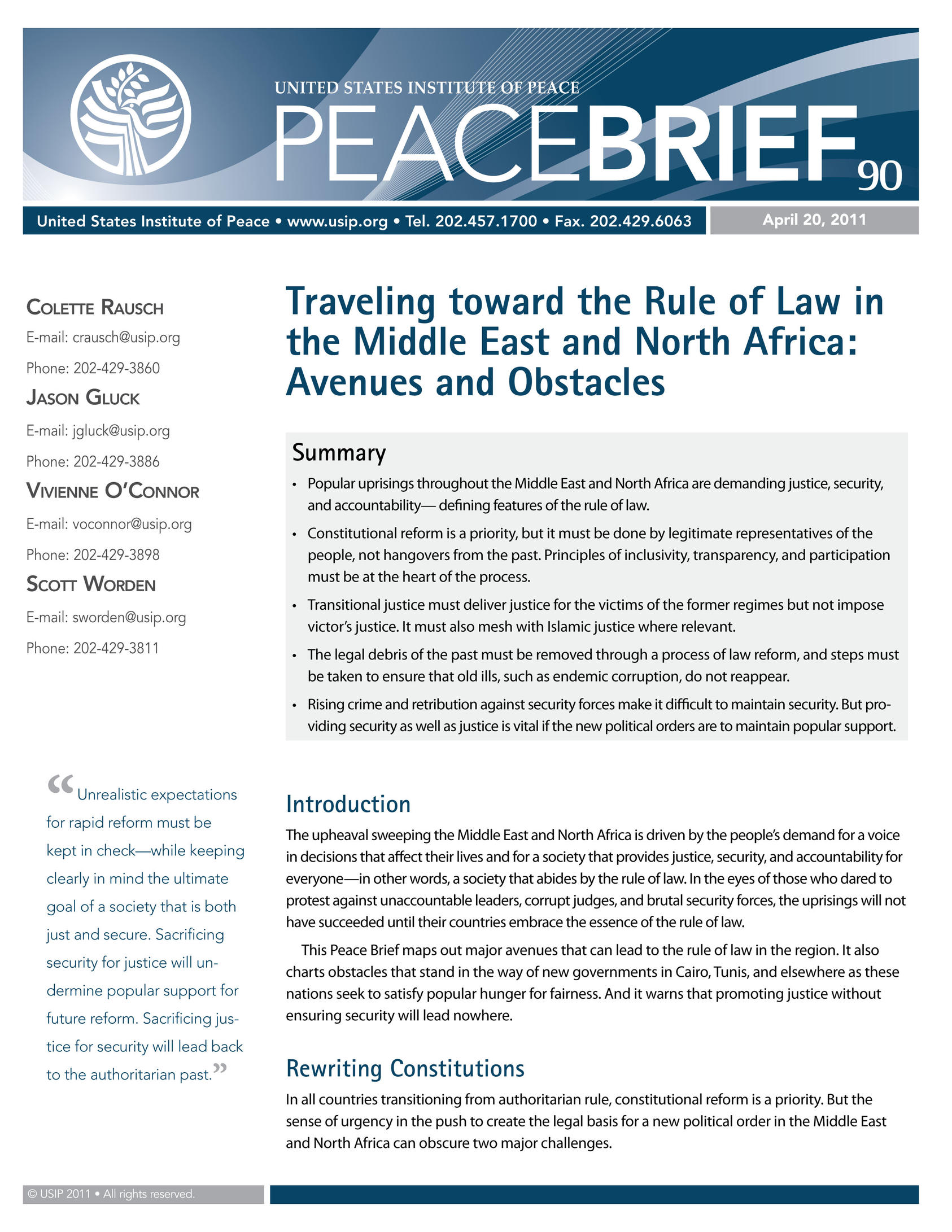This brief was written by the director of USIP’s Rule of Law Center of Innovation and three of the center’s senior advisers: Colette Rausch, Jason Gluck, Vivienne O’Connor and Scott Worden. The authors’ analysis is informed by their knowledge of the Middle East and North Africa and their firsthand experiences in promoting the rule of law in transitional states such as Afghanistan, Cambodia, Haiti, Iraq, Kosovo and Nepal.

Summary
- Popular uprisings throughout the Middle East and North Africa are demanding justice, security, and accountability— defining features of the rule of law.
- Constitutional reform is a priority, but it must be done by legitimate representatives of the people, not hangovers from the past. Principles of inclusivity, transparency, and participation must be at the heart of the process.
- Transitional justice must deliver justice for the victims of the former regimes but not impose victor’s justice. It must also mesh with Islamic justice where relevant.
- The legal debris of the past must be removed through a process of law reform, and steps must be taken to ensure that old ills, such as endemic corruption, do not reappear.
- Rising crime and retribution against security forces make it difficult to maintain security. But providing security as well as justice is vital if the new political orders are to maintain popular support.
About this Brief
This brief was written by the director of USIP’s Rule of Law Center of Innovation and three of the center’s senior advisers: Colette Rausch, Jason Gluck, Vivienne O’Connor and Scott Worden. The authors’ analysis is informed by their knowledge of the Middle East and North Africa and their firsthand experiences in promoting the rule of law in transitional states such as Afghanistan, Cambodia, Haiti, Iraq, Kosovo and Nepal.
Explore Further
- Eye on the Middle East and North Africa | March-April 2011
Experts from the U.S. Institute of Peace (USIP) are closely following developments throughout the Middle East and North Africa. In a series of reports and interviews, they cover a wide range of issues.